ITIL is the most widely accepted IT Service Management approach in the world. ITIL has led the ITSM industry with guidance, training, and certification programmes for more than 30 years. ITIL 4 brings ITIL up to date by re-shaping much of the established ITSM practices in the wider context of customer experience, value streams, and digital transformation, as well as embracing new ways of working, such as Lean, Agile, and DevOps.
ITIL 4, the latest edition of ITIL, provides the guidance, organisations need, to address new service management challenges and utilise the potential of modern technology. It is designed to ensure a flexible, coordinated and integrated system for the effective governance and management of IT-enabled services.
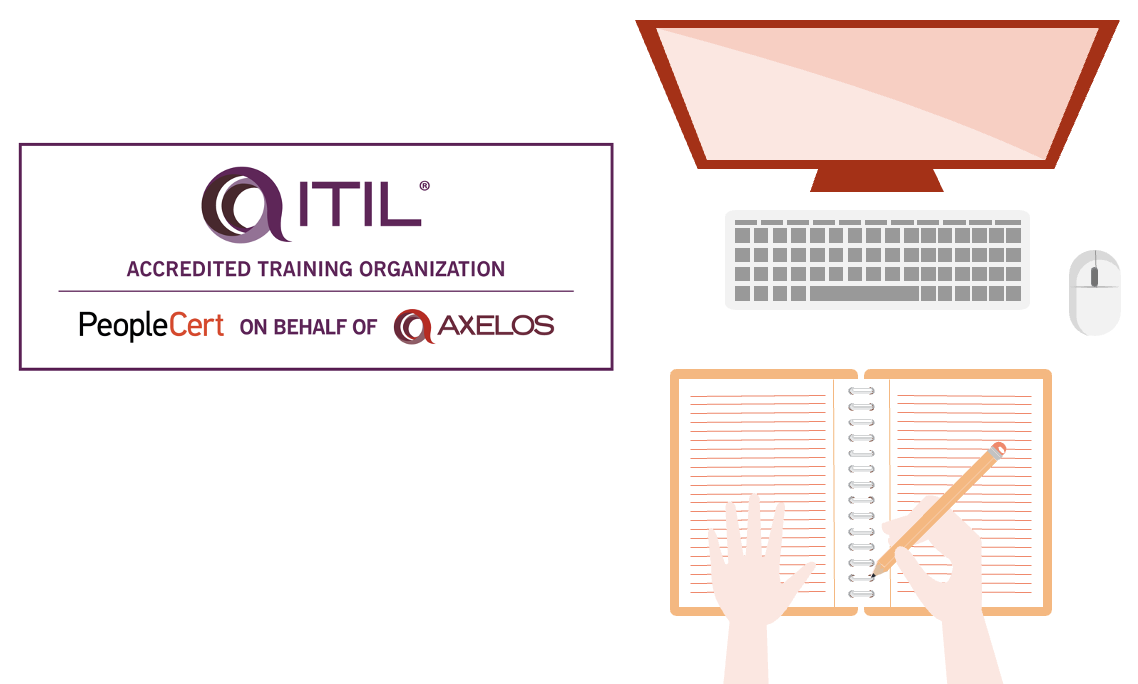
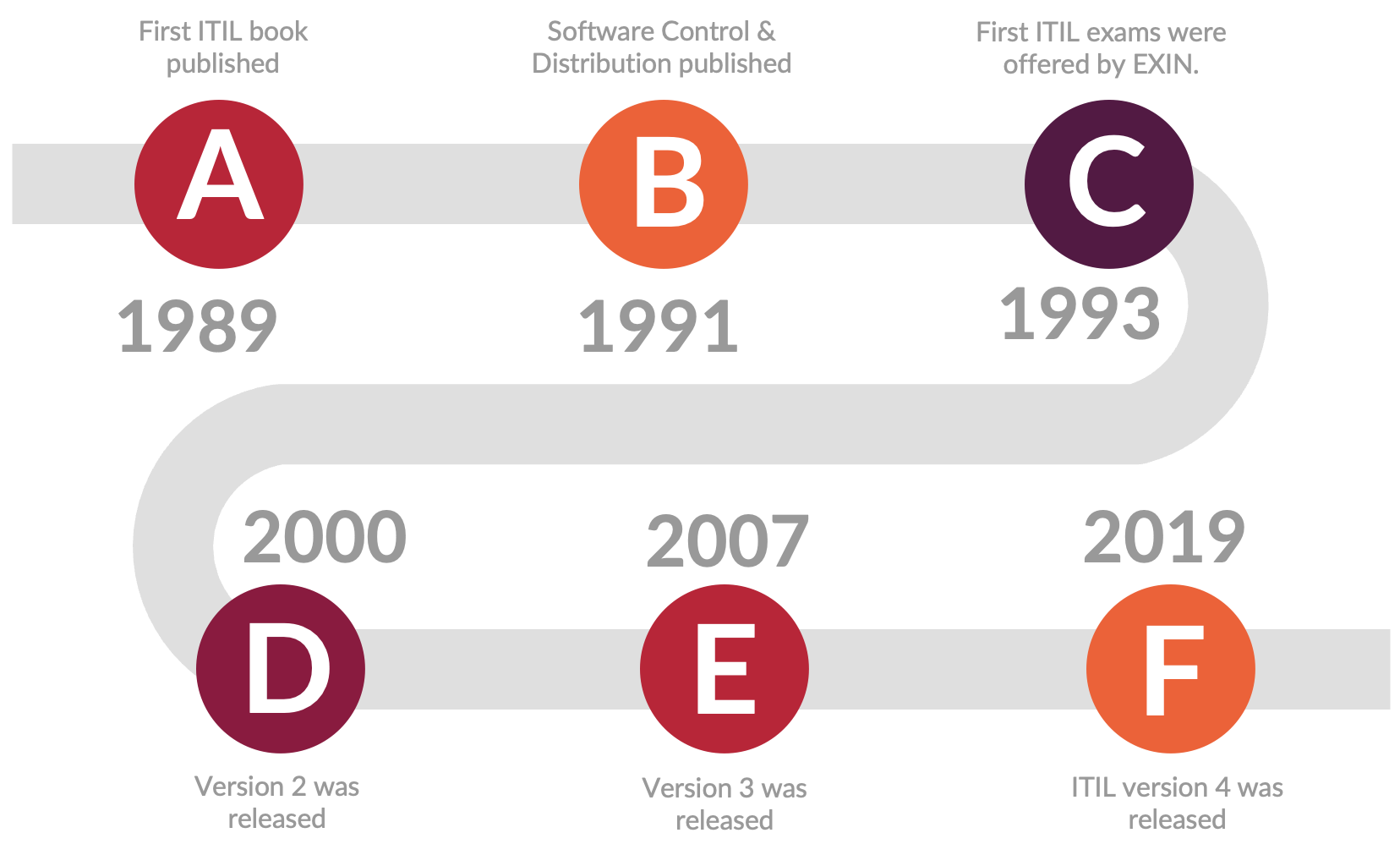
ITIL was created over 25 years ago by the British Government – since then it has been improved, constantly looking at taking good practice and distilling it into best practice.
ITIL 4 has different levels and areas of study and each one of these has dedicated publication.
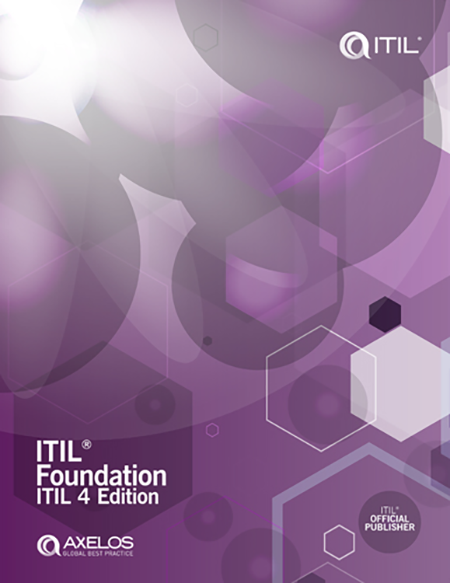
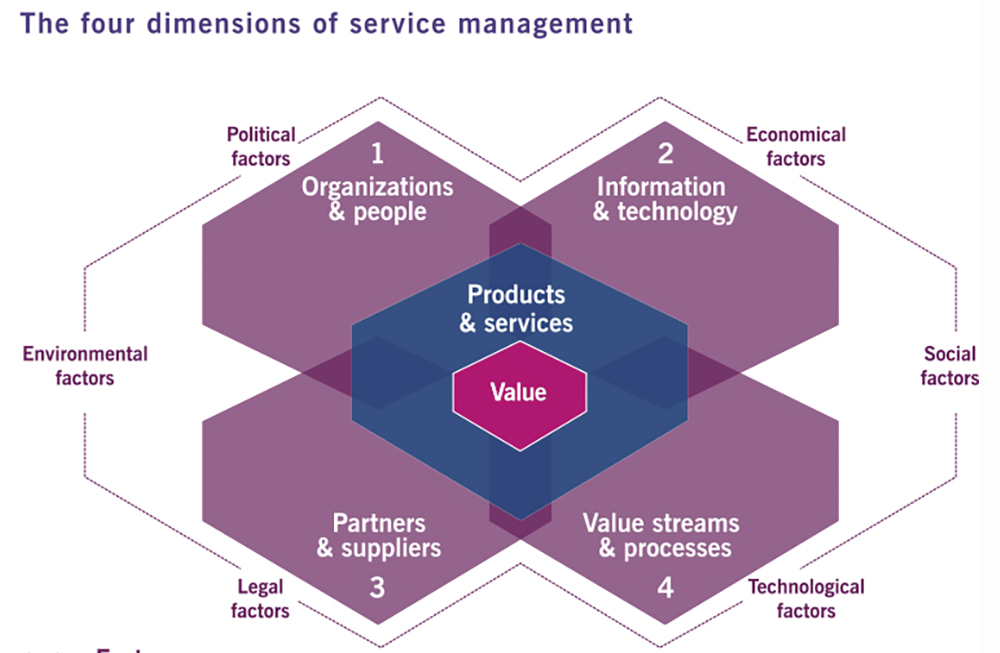
A guiding principle is a recommendation that guides an organization in all circumstances, regardless of changes in its goals, strategies, type of work, or management structure. A guiding principle is universal and enduring. ITIL IT serve management principles are following:
In ITIL, a management practice is a set of organizational resources designed for performing work or accomplishing an objective. The origins of the practices are as follows:
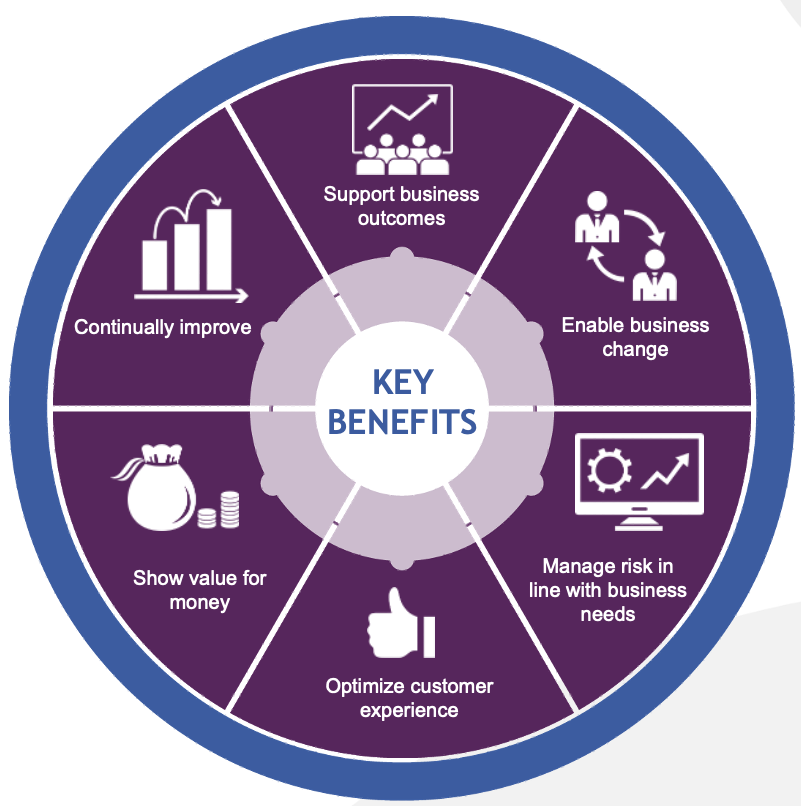
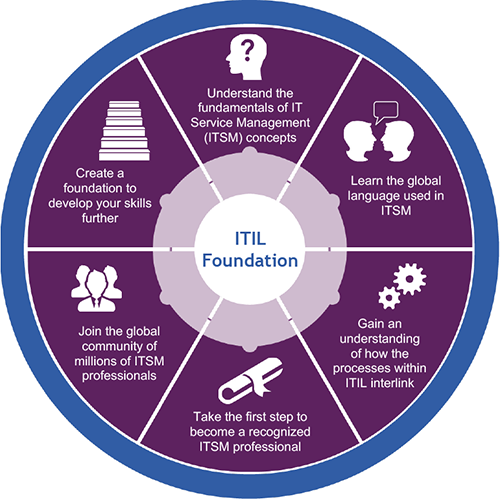
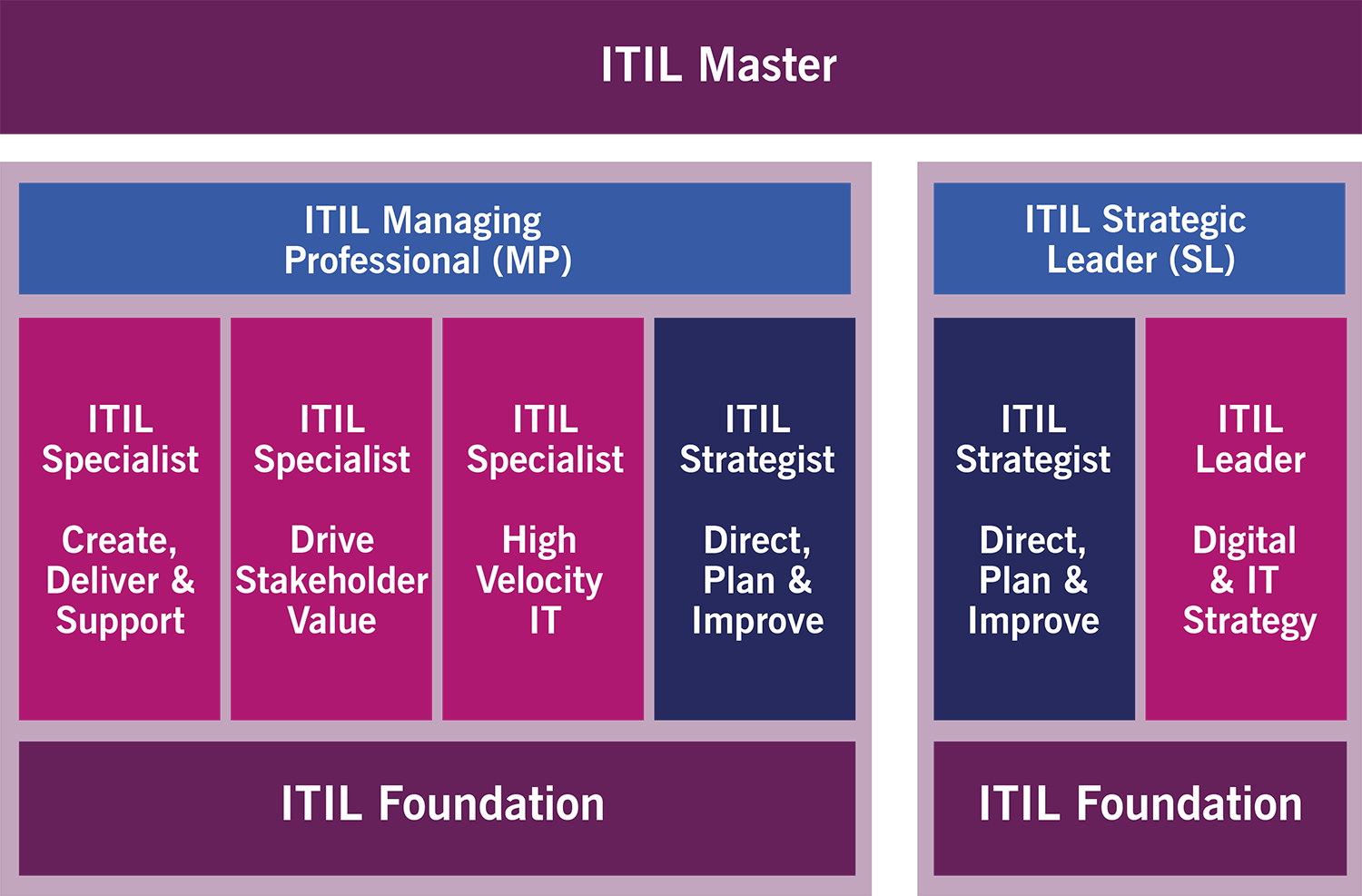
ITIL 4 certification trainings are provided by PeopleCert's Accredited Training Organizations (ATOs) across the globe. Tecknologia is also a PeopleCert Accredited Training Organization (ATO) offering ITIL 4 Foundation certification trainings across the globe and in various formats.
| Certification Level | Course Duration (Virtual Classroom) | Course Duration (Classroom) | Certificate Valid for |
|---|---|---|---|
| ITIL 4 Foundation | 2 Days | 2 Days | 3 Years |
Click on the links for certification levels to explore the pre-requisites, exams and other details.
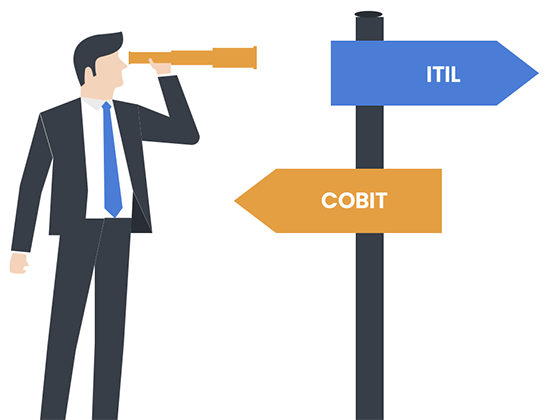
Information Technology Infrastructure Library (ITIL) is the most widely accepted IT Service Management approach in the world. ITIL has led the ITSM industry with guidance, training, and certification programmes for more than 30 years.
Prices vary depending on the mode of delivery, location, deliverables and the quality of training delivery. Typically ITIL 4 Foundation online training costs between £1200 and £2000.
ITIL 4 Foundation pass marks remain 26/40 (65%).
ITIL 4 Foundation qualification has helped tens of thousands of ITSM professionals globally enhance their skills and achieve their professional ambitions. Professionals holding ITIL accreditation stand a better chance of being invited for an interview and definitely stand a better chance being offered a role afterwards.
ITIL 4 Foundation can be a very valuable addition to the list of professional ITSM qualifications and accreditations which can help achieve professional growth within organisations, without a need to switch jobs/ employers.
ITIL has been, in the past, and is very much relevant today. ITIL certified practitioners an added advantage over the crowd.
ITIL 4 Foundation is a good choice for beginners who aim at pursuing a career in ITSM domains and related disciplines. Having ITIL qualification early in the career can play the role of a catalyst when it comes to climbing the professional ladder.
While ITIL 4 Foundation exam is relatively hard, it is not rocket science and anyone with correct level of attention, training and devotion can definitely achieve success in the exam.
ITIL 4 Foundation pass rate (across the market) remains around 85% globally, in first attempt. Tecknologia takes pride in maintaining 100% pass rate so far (May 2024).
It is absolutely possible to achieve ITIL 4 Foundation exam success while relying on self study. However, high quality ITIL 4 Foundation training can accelerate the process, along with exam success probability, for sure.
ITIL 4 certifications are considered to be professional qualifications only. These qualifications are widely recognised and sought after globally, however, they are not the same as a college or university degree. Some quarters believe that ITIL qualifications are equivalent to UK NQF 5/6 - Tecknologia has no grounds to confirm this.
There is no negative marking in any of ITIL exams. No marks are deducted for a wrong answer.
All ITIL 4 certifications have validity of 3 years from issuance date. Candidate must retake exam(s) within 3 years to maintain their certifications. Alternatively, candidates can log Continuous Professional Development points (CPDs) over three years, via paid PeopleCert membership, to maintain certifications.